Aphids on eggplant
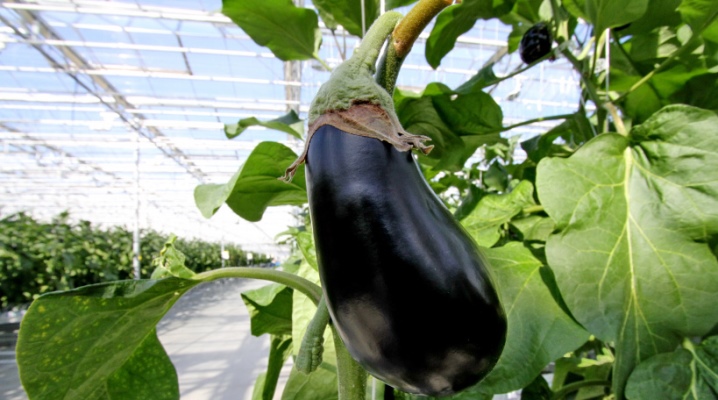
Eggplant is a plant with not the best immunity, it does not have an enviable resistance to diseases and cannot always resist pests, especially in the form of aphids, dangerous and insidious, threatening the death of the entire crop.
Signs of defeat
Since eggplant is a thermophilic crop, it is often planted in a greenhouse. But this is not a barrier for aphids, which can slip into the greenhouse during ventilation or simply remain in the ground since wintering. And also ants are "taxi drivers" for aphids, they carry the pest on themselves - and in the greenhouse as well.
It is possible to determine what aphids parasitize on eggplants by the following criteria:
- a white bloom appeared on the plant;
- it seems that there are more ants in the ground;
- if you examine the leaves, stems and flowers of eggplant, you can see colonies of small insects;
- sugary discharge appeared on the petioles of the foliage;
- leaves curl and turn yellow, become covered with brown spots;
- flowers, ovaries wither and fall off.
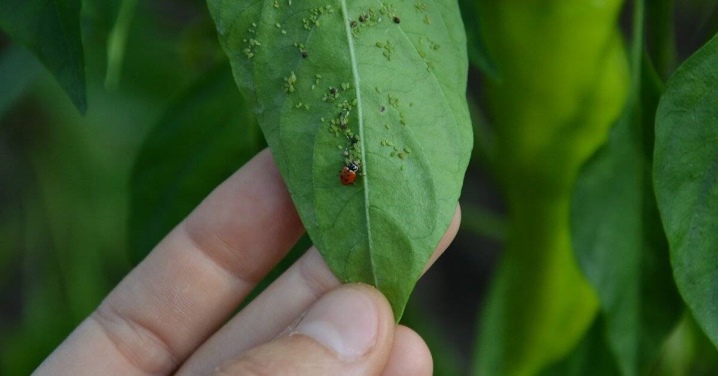
The task of the aphid is to drink all the juices from the plant, this is how it survives. But depriving eggplants of nutrients, it also blocks their flow to the roots. Accordingly, the growth of seedlings slows down, it begins to dry out. If there are a lot of aphids on eggplants, there is a great risk that black mold will appear, and it practically kills the metabolic processes inside the plant. But this is not all the dangers of aphids - it often infects the culture with diseases, serves as their carrier, that is, it can completely destroy the planting.
Naturally, at an early stage of plant damage, it is possible to cope with the pest. But, perhaps, a whole complex will be required for this: a change in agricultural technology, and the use of chemical agents, and the use of folk recipes.
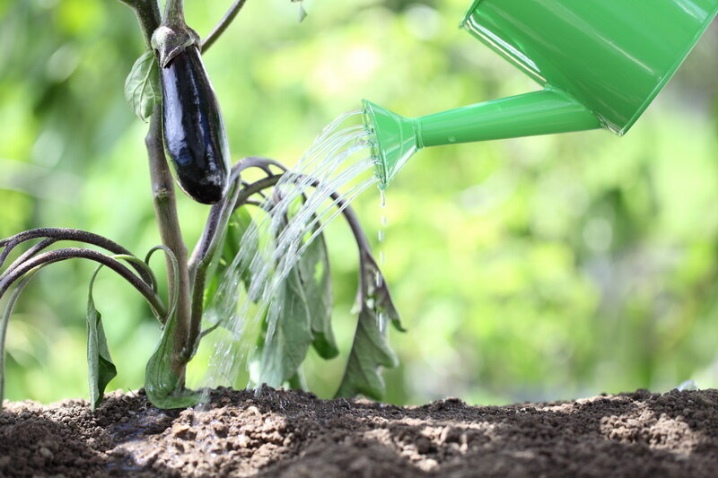
Reasons for the appearance
The main reason, which looks the most convincing, is considered non-observance of the temperature regime. If the air in the greenhouse is too warm, especially at night, the place literally attracts aphids. If there is high humidity near the roots of the eggplant, this is also a risk factor. Finally, if the seedlings are planted in soil infested with aphid larvae, the plant has almost no chance.
That is why you need to monitor the ants, which themselves often pest on the site, and the parameters of temperature and humidity in the greenhouse, and the level of moisture in the soil. And that is why, before the start of the season, the soil must be inspected, disinfected and prepared for new plantings.
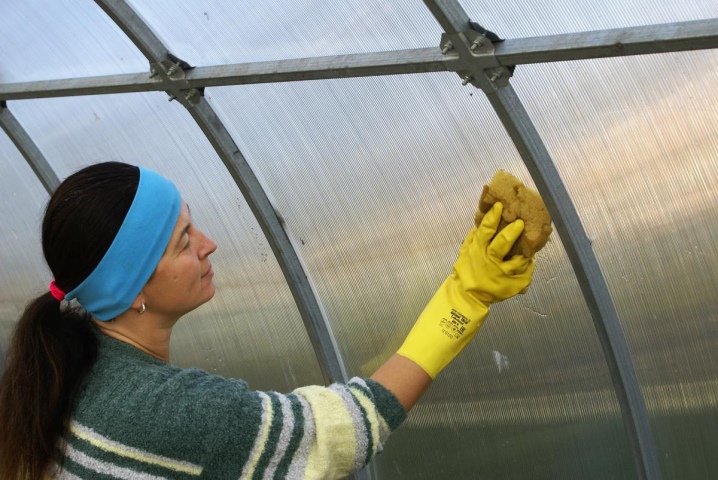
Ways to fight
Fortunately, this can be treated - if a pest attack on plants is detected in a timely manner. The use of chemicals will give a quick and good result; you cannot make them at home, but you can buy them in any specialized store.
- Inta-Vir. Synthetic analogue of natural poison. The natural component can be found in tansy and chrysanthemum. If you treat plants with it, they will no longer be suitable for food, but pests will also die with them, which means that it will be possible to save the crop untouched by the parasite. The substance is sold either in the form of a powder or in the form of a tablet, both of which must be dissolved in water. Eggplant will have to be sprayed twice with a difference of 7 days.

- Kortlis. A systemic agent that destroys an active pest. It penetrates into the tissues of the plant, and the latter becomes poisonous for the future aggressor. True, the effect lasts only 3 weeks. The drug is also dissolved in water. It is considered especially effective for use in the open field.
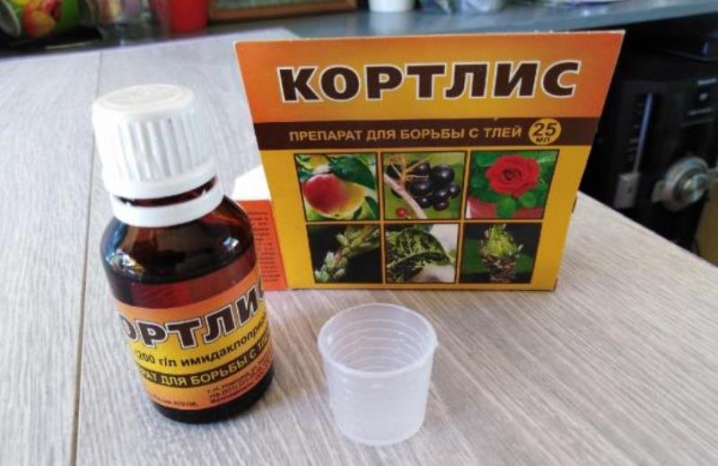
- Tanrek. A product known to many farmers, it copes well with the destruction of aphids in the garden. It is an insecticide that penetrates the tissue of eggplants, capable of lingering in the soil and destroying even the laid larvae.
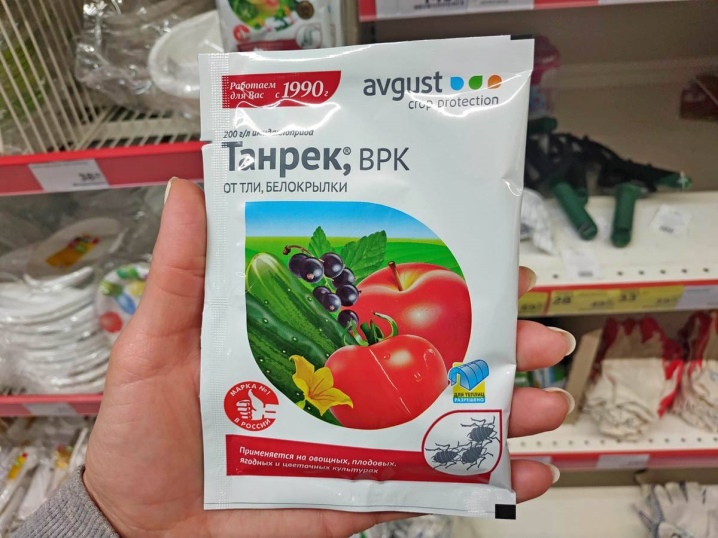
- Fitoverm. The waste product of organisms that live in the soil can also cope with the dominance of aphids. But you can't call it safe either. After spraying for 7-8 hours, the insecticide will not be washed off the plant. And the effect of complete victory over aphids can be expected for another week.
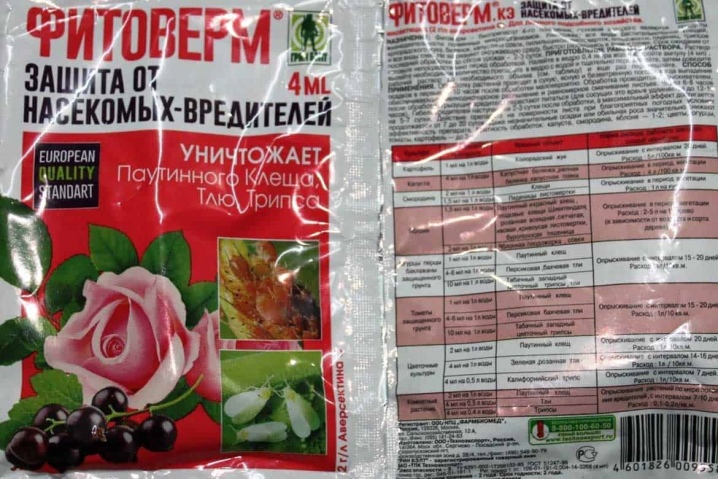
- "Spark". Substance non-toxic to humans and warm-blooded animals. It is dissolved in water for further spraying. It is often used as a prophylactic agent.
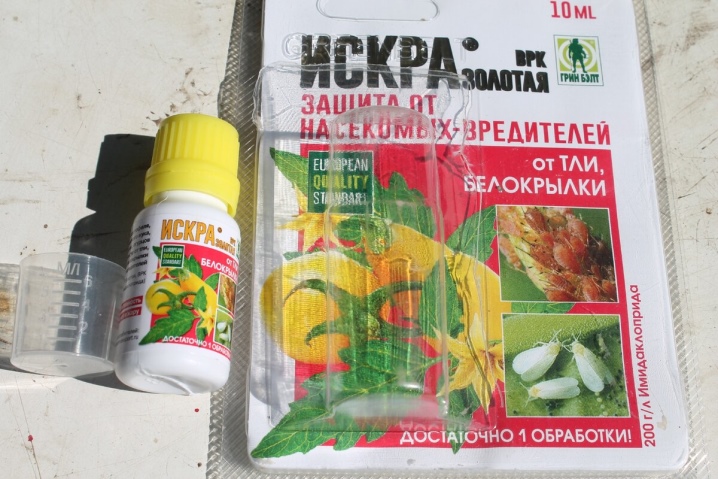
Chemical treatment is always accompanied by the use of personal protective equipment.
Obviously, in the era of ecoactivism, farmers are the last thing farmers want to use “chemistry” to save crops. And, indeed, it is possible to fight with the so-called folk remedies with great success.
- Tobacco. Tobacco powder is a noble healer in the garden. If you first water the plants with a light soapy solution, and then sprinkle with tobacco, you can get rid of the aphids. Or just pour water over the tobacco, insist for a day, then add soap and spray the bushes with this mixture twice a week. For 5 liters of water, 250 g of tobacco dust is taken.
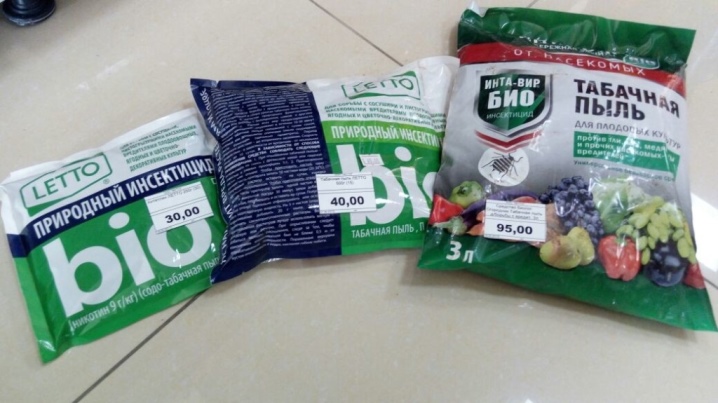
- Ash. If you dilute the ash in cold water, and then add a little laundry soap there (the composition should become sticky), you get a good solution for the affected eggplant. The proportions are as follows: 5 liters of water, 150 g of ash, 40 g of soap. The reverse side of the leaves should be especially carefully processed. Ash will make the vegetable juice bitter, which will scare off the pest. This will not affect the taste of eggplants.
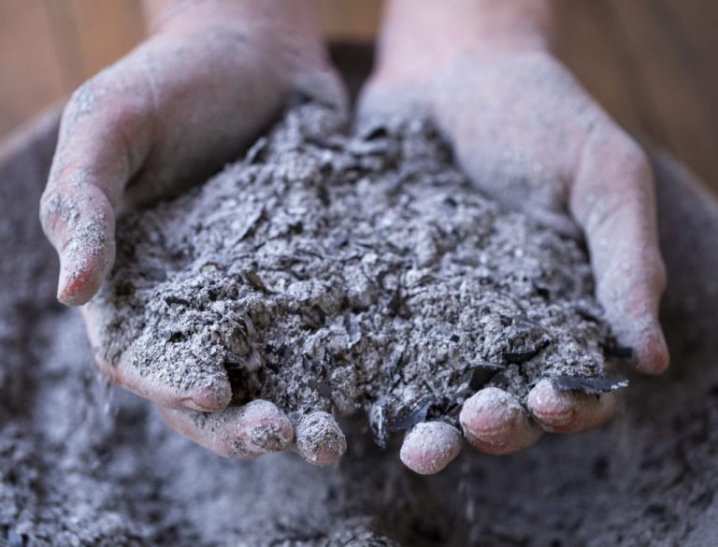
- Herbal decoctions. Natural aphid poison can be obtained from tansy and wormwood. The grass is poured with water, insisted for 3 days. Then add soap and process the planting.
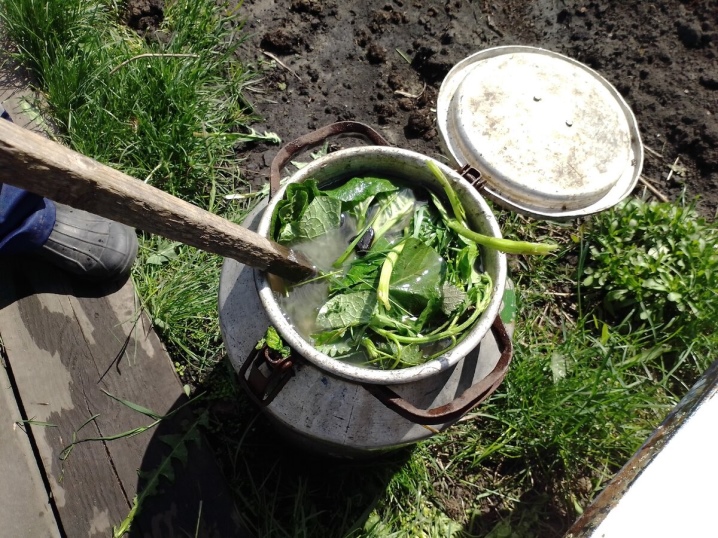
- Tomato tops. The tops should be finely chopped, sent to a bucket and cooked for half an hour, or rather, boiled. A glass of the finished product is added to 850 ml of water.
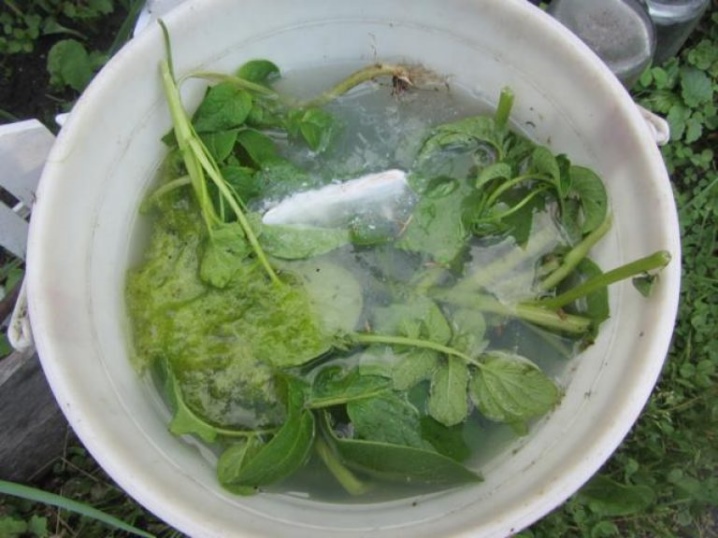
- Garlic. For 1 liter of water, take 200 g of chopped garlic, the finished product is diluted in a ratio of 25 ml of infusion to 10 liters of water. Sometimes garlic is replaced with onion peel, but the first option will be more powerful.
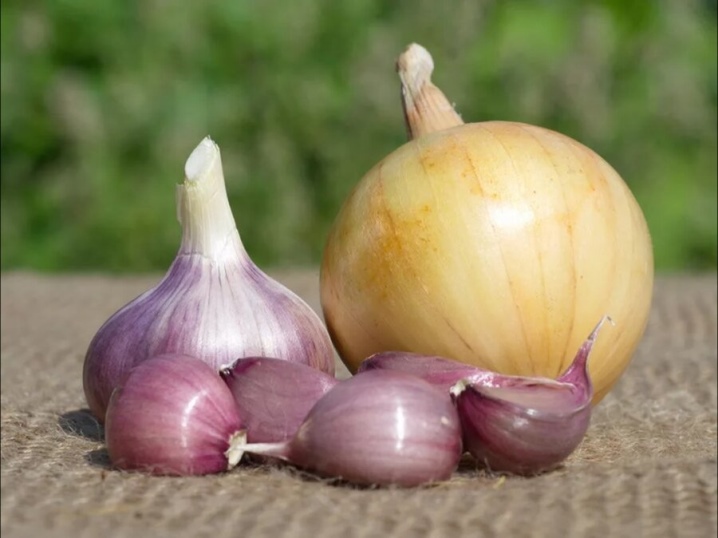
- Vinegar. Ordinary table vinegar repels insects well, and aphids are also afraid of it. 5 liters of water to 100 ml of vinegar - eggplant is treated with this mixture every 3 days for 3 weeks. Instead of vinegar, ammonia can also be used: 5 ml per 5 liters of water, one-time treatment per week.
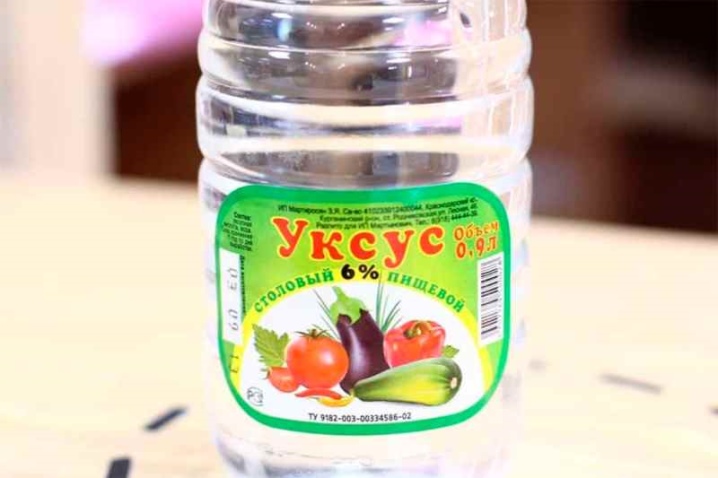
The listed folk remedies can be alternated. The simplest and most non-aggressive is a soap solution. Laundry soap of 72% is optimal for this. The soap is grated and 1 tablespoon of these shavings is added to 1 liter of water. During such processing, it is very important to pay special attention to the tips of the leaves, there are the largest accumulations of pest larvae.
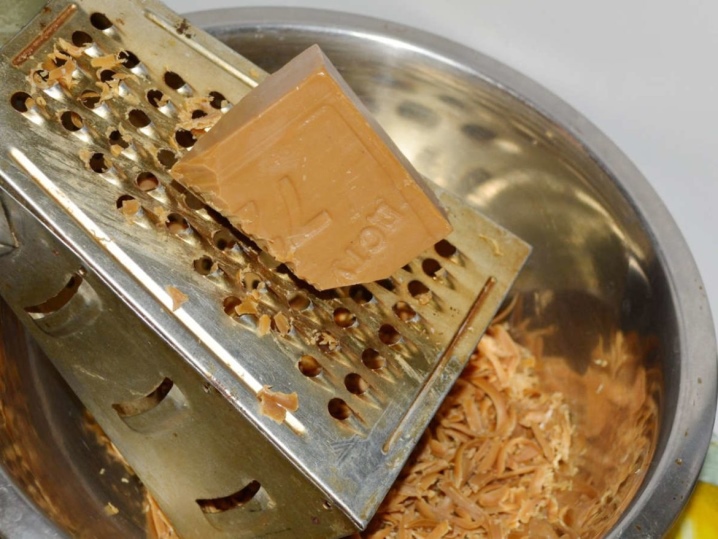
Let's give some more tips.
- If garlic, fennel or onions are planted along the edges of the eggplant rows, the aphids will be reluctant to attack such areas.
- Sparrows, tits, warblers and linnet love to feast on aphids. To attract them to the garden, you need to lure them with birdhouses or at least feeders.
- Will help remove aphids and other insects that eat them, for example, hoverflies. To attract them to the site, you need to plant daisies or fennel on it. And the ground beetle, which also exterminates aphids, "comes" to amaranth. Earwigs will be attracted to the site by containers with sawdust - they just need to be placed around the territory.
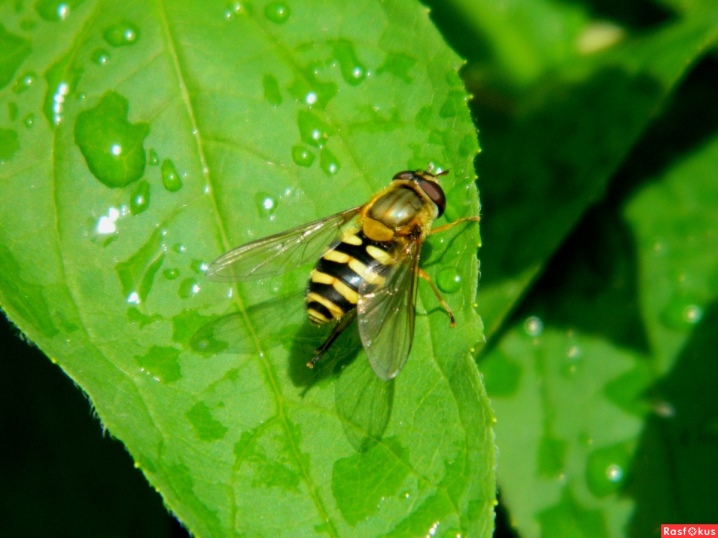
The main thing is to notice the pest in time, prevent him from occupying the entire planting and settling in the green foliage of future fruits. Neglected cases are always a significant loss of yield.
Prevention measures
In order not to attract aphids to the site, you need to correctly feed. Overfeeding a plant is often more dangerous than underfeeding. The parasite is very fond of overfed eggplants, which are especially nutritious for him.
The greenhouse system is a closed space, and if aphids have already appeared in it, then you need to determine what led to this. Of course, it is impossible to stop airing the greenhouse or enter it rarely, fearing to bring pests on the shoes. But some security measures are still in the hands of the owner of the site.
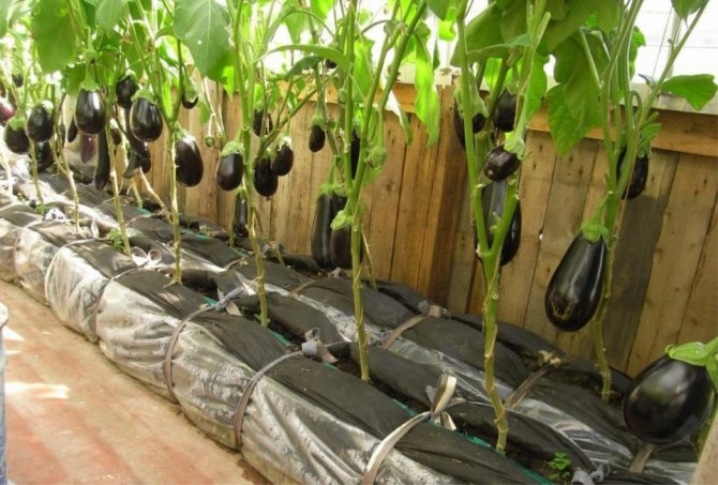
Regularly in the greenhouse you should:
- inspect plants, the back of the leaves;
- remove plant residues without delay, especially dead parts of crops;
- get rid of weeds to the maximum, without giving the beds a chance to overgrow.
And the greenhouse can also be fumigated: tobacco and sulfur checkers are used for this. Such checkers are sold, including those with insecticides in the composition. The smoke perfectly disinfects the soil, therefore, at the beginning of the season, at its end, as well as during the growing season, it is very useful to do this.
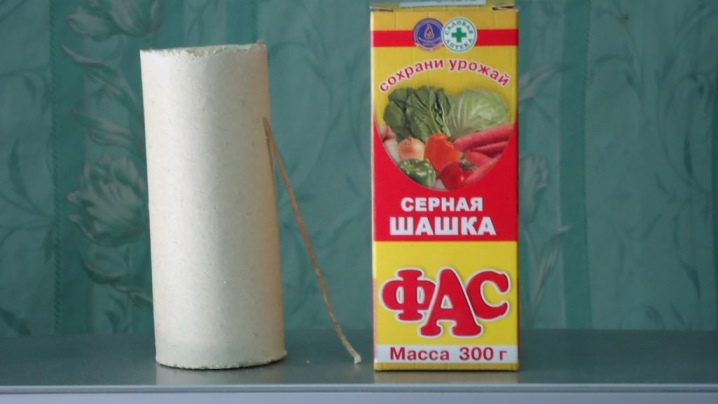
The following video will tell you how to deal with aphids on eggplant.













The comment was sent successfully.